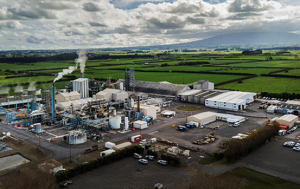
Kapuni project reaches financial close in Taranaki
Ballance Agri‑Nutrients and its partners say that the Kapuni Project has reached financial closure, unlocking an integrated renewable electricity and green hydrogen development in ....

Ballance Agri‑Nutrients and its partners say that the Kapuni Project has reached financial closure, unlocking an integrated renewable electricity and green hydrogen development in ....

CRU’s Nitrogen+Syngas Expoconference 2026 returned to Barcelona for its second year running to discuss the state of the industry, both economically and technically. The opening included a tribute to Casale’s late Dr Umberto Zardi by Norbert Ringer of Clariant and Lisa Connock, Managing Editor of Nitrogen+Syngas magazine. Dr Zardi, whose obituary we carried in issue […]
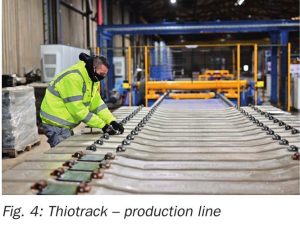
Thiomaterials reports on the key features and successful performance of Thiotrack sulphur concrete sleepers, offering high fatigue endurance with a truly reversible circular binder.
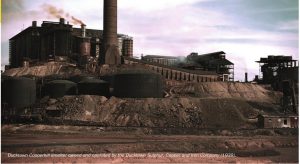
Recalibrate™ has developed a next generation sulphur burning plant to produce sulphuric acid with ultra-low sulphur dioxide and zero NOx emissions, designed to derisk the permitting process and increase speed to market for new sulphuric acid plants.
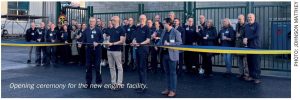
Johnson Matthey (JM) has officially opened its first hydrogen internal combustion engine facility, where emission control systems will be tested. Hydrogen internal combustion engines use zero carbon hydrogen fuel in tried-and-tested engine technology, presenting a viable path for decarbonising medium and heavy-duty transport, such as trucks and buses.

Air Water Gas Solutions, a subsidiary of Air Water America, will build an air separation unit to support the production of 1.1 million t/a of blue methanol at Sandpiper Chemicals’ blue methanol facility in the US. The low carbon methanol producer has contracted Air Water to design, build, and operate the ASU to provide oxygen, nitrogen, and instrument air for blue methanol production. The project is still at the pre-final investment decision (FID) stage, with production targeted for 2030.
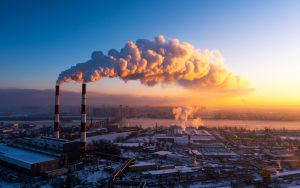
The voluntary carbon market (VCM) is maturing rapidly, and a succession of governance, standards and policy initiatives has been launched since 2020 to tackle weaknesses in integrity and scalability which have constrained uptake and undermined confidence.

The African Development Bank has approved a $10 million loan to Hyphen Hydrogen Energy, a Namibian green hydrogen development company, to support a green ammonia project valued at more than $10 billion, and with the potential to position Namibia as a pioneer in the global green hydrogen economy. The loan, sourced from the Sustainable Energy Fund for Africa (SEFA), will support frontend engineering design (FEED) studies for solar and wind generation, battery energy storage systems, and electrolyser capacity and desalination infrastructure, aiming to de-risk the project and attract the financing required for its realisation.
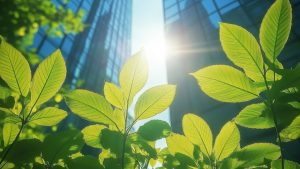
Barents Blue AS has announced Proton Ventures as a new partner in the Barents Clean Ammonia Project (project formerly known as the Barents Blue project). Barents Blue says that the Dutch engineering and project development company, a pioneer in the clean ammonia industry, “will bring significant resources and industry expertise to the project and the value chain for clean ammonia, important for the realisation of Europe’s largest clean ammonia production plant located in Finnmark, Northern Norway”.

Oman’s Ministry of Transport, Communications and Information Technology has signed a memorandum of understanding with a consortium comprising HIF EMEA GmbH, Acciona Nordex Green Hydrogen and Al Meera Investments to jointly explore the development of a low carbon methanol supply and bunkering hub at Dhofar in Oman. This strategic collaboration aligns with Oman’s Vision 2040 strategy, supporting national decarbonisation targets and positioning Oman as a pre-eminent green maritime and bunkering hub in the Middle East.